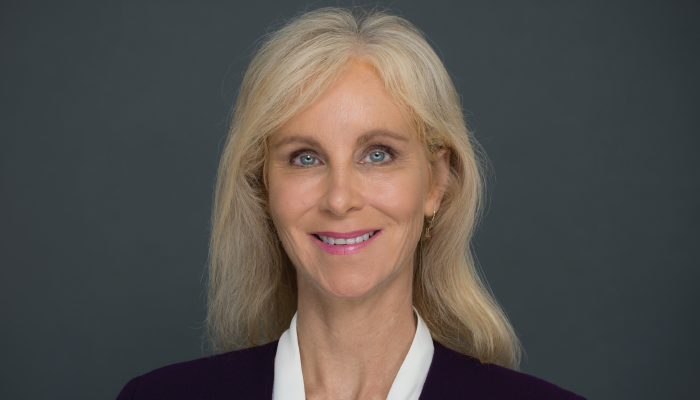
Barbara Erny
Barbara Erny, Adjunct Clinical Associate Professor of Pulmonary, Allergy & Critical Care Medicine at Stanford University, examines the policy changes needed to encourage better sustainability in the profession, and how sustainable ways of working can feed into one of health care’s guiding principles, “First, do no harm.”
What are the most urgent sustainability priorities and challenges in the field?
Our priorities should be reducing trash from the OR and clinic, decreasing single-use plastics, eliminating drug waste, and educating ophthalmologists and trainees about sustainability in healthcare. We should also be focused on using renewable energy and building “green” buildings, especially for low- and middle-income countries (LMICs).
Changing policy and regulations that require single use of products when there is no evidence that it is not safe to reuse them is currently our biggest challenge.
What has advanced/changed in terms of how practitioners and the industry have addressed sustainability in the last decade?
Ophthalmologists have become more aware and more frustrated with the increasing amount of waste we generate, especially in light of the harms of plastics and climate change getting much more press. In the past decade, we have seen our industry partners start addressing sustainability, including using renewable energy and “greening” their facilities. Now, ophthalmologists involved with EyeSustain are working together with our industry partners to reduce waste and packaging, etc.
Is it realistic to achieve truly global buy-in to the sustainability mindset?
It is absolutely necessary and it is happening. EyeSustain has over 50 ophthalmology member societies from all over the world, who are committed to sustainability and educating their members. The Climate Action Working Group (CAWG) is providing guidance to LMICs and non-governmental organizations (NGOs) to practice sustainably, saving their money and resources.
How can ophthalmology stakeholders – clinicians, industry, regulators – work together to reach sustainability goals?
Ophthalmologists and industry are working together through the Industry Initiatives division of EyeSustain. We formally meet in person several times a year, and have common goals of reducing packaging and other waste. For example, three major ophthalmic societies jointly released a position paper in 2023 urging surgical manufacturers to move to electronic instructions for use wherever possible. To eliminate this unnecessary source of waste, the position paper calls for moving to QR codes for the IFU (Instructions For Use), a move many of our industry partners have already made.
Also, a single person can make a big difference: David Palmer, an ophthalmologist based at the Northwestern University Feinberg School of Medicine, Chicago, has worked with various regulators in the state of Illinois regarding drug waste, so that now patients can take home bottles of medications that were opened specifically for them in the OR; they are now also able to use the same bottle of drops on multiple patients.
Ophthalmologists in other states are following Palmer’s lead and lobbying for change, but it can be a huge challenge to work with regulators in the US, given many states – and even healthcare systems and hospitals – have their own rules.
What goals would you like to see the profession achieve in the next 5-10 years?
I'd like to see us influence all other medical specialties to build an initiative like EyeSustain, and spread these achievements beyond ophthalmology. I hope to see regulations change so that we are able to use our own personal judgment as to how many times an instrument or piece of equipment can be safely reused.
I would also like to see the global development of programs to recycle medical plastics (Australia and India are examples of countries with such facilities), and I'd like every physician to understand the connection between plastic waste and human health, as well as how climate change is detrimental to both ocular and general health.
Climate change, health and equity, as well as sustainability in healthcare, should all become required learning for our speciality boards and Maintenance of Certification type boards. And I want to see every physician prioritizing the “First, do no harm” principle by practicing in a sustainable way.
Barbara C. Erny is a board-certified ophthalmologist with a significant focus on global health and environmental sustainability. She currently serves as the Medical Liaison for International Programs at the American Society of Cataract and Refractive Surgery (ASCRS) Foundation, and is an Adjunct Clinical Associate Professor at Stanford University. She also serves as a member of the Physicians for Social Responsibility Environmental Health Committee, the Steering Committee for the Medical Societies Consortium on Climate and Health, and the Climate Action Working Group of the International Agency for the Prevention of Blindness.
